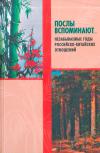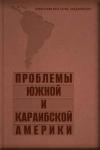New World Chaos: World Order That Never Started
Вход
Авторизуйтесь, если вы уже зарегистрированы
The contemporary world order finds its roots in the post-World War II environment when the victorious powers designed the international institutions and norms that went on to define the new rules of the game. 2016 marked the endpoint of this 70-year-long era that carried through the Cold War and went into the following quarter century period following the collapse of the USSR.
Ironically, the Cold War period guaranteed more international stability and order than what we observe today. Both superpowers were entrenched in a tough constant confrontation, but at the same time both were well aware of their limitations. Middle powers in possession of weapons of mass destruction would largely bandwagon with one of the sides of the system rather than play all alone and/or against the superpowers. After the collapse of the USSR, the only “hyperpower” – as the former French Foreign Minister Hubert Vedrine defined the United States – tried to spread its ideological principles over the rest of the world. In this period, newly-independent Russia could not resist foreign pressures and its silence was taken as an absolute acceptance of the modified rules. As a result, the United States stood on the world stage with an unshakable confidence in its ability to unilaterally shape global politics.
But with the rise of neoliberal thought in the 1990s, the role of governments in politics decreased substantially. Their role also decreased in the conduct of international relations and influencing global processes. The so-called 21st century world order, which survived until 2008, came to an end as a result of the international financial crisis greatly affected the United States and Europe. It was not the financial crisis alone, but also the crisis of political imagination. As Ivan Krastev and Mark Leonard noted, Europeans mistook Russia’s weakness in the post-Cold War period to block the ongoing processes to an assent. The crack created after the international financial crisis continued to widen in 2014, showing the incapability of the existing governments and forms of institutions to handle problems in the new globalized reality.
full article http://www.erainstitute.org/new-world-chaos-world-order-that-never-started/





